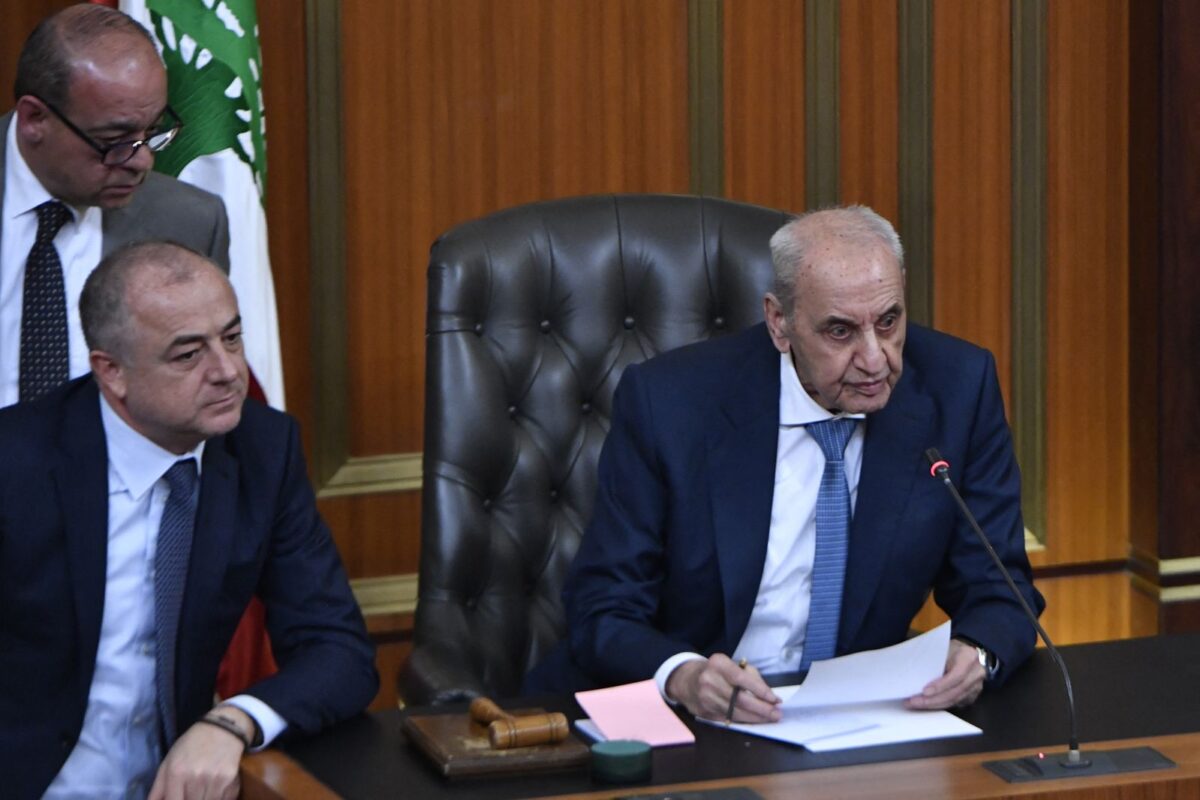
It is difficult—perhaps impossible—for Lebanon to change so long as Hezbollah retains its weapons. While some argue that focusing exclusively on the group’s arsenal is simplistic or even unfair, Speaker Nabih Berri’s latest move—blocking expatriate voting in the upcoming parliamentary elections—returns the discussion to its core and reminds us of the harsh reality at hand.
During the most recent parliamentary session, Berri, Hezbollah’s partner in “crime”, acting in his capacity as Speaker, refused to place the issue of expatriate voting on the agenda. Instead, he deferred to the existing law, which restricts the diaspora’s electoral rights to electing six MPs representing six continents, stripping them of their previous right to vote in their home districts, as they did in the last elections. This is not merely a question of electoral law—it is emblematic of a much deeper struggle: the Shiite duo’s categorical refusal to concede anything on the issue of arms.
This deadly trinity—arms, corruption, and obstruction of electoral reform—rests on three foundational pillars:
First, the weapons: Hezbollah’s weapons are the linchpin of the political control exercised by Berri and what remains of Hezbollah over the state. Cloaked in the rhetoric of “protecting Shiite rights,” this claim is heretical in nature: it protects neither the Shiites nor Lebanon. As recent regional events have shown, these weapons have failed even to defend Iran itself or serve any credible deterrent function.
Second, sectarian patronage: This is evident in the monopolization of key appointments across Lebanon’s security, administrative, and judicial institutions. Successive backroom deals and political clashes over judicial appointments have revealed a system in which competence and integrity are irrelevant. What matters is loyalty—sectarian loyalty—regardless of constitutional violations or governmental paralysis.
Third, the rejection of electoral reform: Berri and Hezbollah categorically reject any reform that might challenge their monopoly over Shiite representation. This rejection preserves the linkage between sect and arms and prevents other Lebanese factions from touching the so-called “national pact.” Hence their adamant opposition to expatriate voting and to meaningful reforms such as the establishment of “mega centers” that would allow citizens to vote freely without facing harassment or coercion from the political establishment.
The right of the diaspora to vote is not a marginal issue. It is a national right and duty. These are the Lebanese who built the country’s reputation abroad and accumulated its symbolic and financial capital. They entrusted their savings to Lebanese banks—only to see them squandered by the same political class now denying them the right to participate in the country’s democratic life.
This trinity—arms, corruption, and the exclusion of the diaspora—is not just a theory. It is a coherent system designed to protect Lebanon’s entrenched criminal order. If weapons are the symbolic foundation of this order, then elections and appointments are its concrete mechanisms—and it is through these that Lebanese citizens must fight back, with a resolve equal to that of the regime’s leaders, who routinely violate the constitution and dismantle the state.
What many overlook is that denying expatriates the right to vote is practically also a denial of sovereignty. Sovereignty is not confined to geography—it is measured by every citizen’s ability to express their political will freely, wherever they may be. Preventing the diaspora from voting is simply an extension of the armed coup against the state—beyond Lebanon’s borders, a coup which has been led by Berri as the face of Lebanon’s so-called political class.
This is not a time for grievance. It is a time for action. Every Lebanese citizen—at home or abroad—has the right and the responsibility to confront this toxic trio, not with silence or resignation, but with resistance: at the ballot box, in the courts, in the streets, and through the creating and upholding a new national narrative. mak
Nabih Berri is not the Lebanese people’s fate. Arms are not a constitution. And the diaspora is not a guest in this country—it is a partner in its salvation.
This article original appeared in Nidaa al-Watan
Makram Rabah is the managing editor at Now Lebanon and an Assistant Professor at the American University of Beirut, Department of History. His book Conflict on Mount Lebanon: The Druze, the Maronites and Collective Memory (Edinburgh University Press) covers collective identities and the Lebanese Civil War. He tweets at @makramrabah







